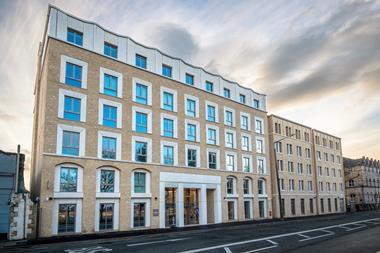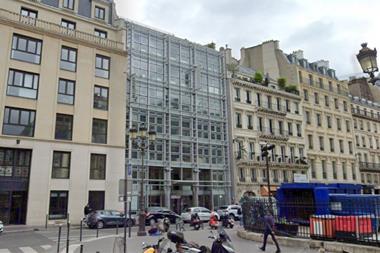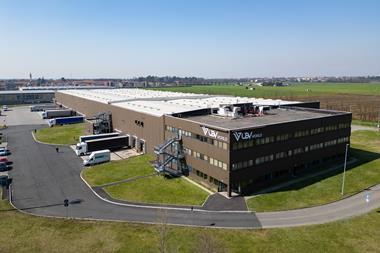Growing interest in overseas real estate is not the only sign of progress among increasingly sophisticated investors, says Christine Senior
Portuguese institutional investors have traditionally been heavily skewed to their own domestic real estate market. There are good reasons for doing this, but gradually things are changing as they acknowledge the value of diversification.
Institutions in Portugal have a taste for real estate - their allocations on average vary between 10% and 15%, but some will go even higher, perhaps to 20%.
Legal changes in 2006 gave funds more freedom to invest, when a cap of 50% in real estate was removed. But, for practical purposes, this made little difference to them, since actual allocations are way below the limit anyway.
"It didn't make such a difference," says Pedro Lancastre, head of capital markets at Jones Lang LaSalle in Lisbon. "Even with the limit, the benchmark was always between 10 and 25% and now they are free to do whatever they want, but the benchmark hasn't changed much."
He says investments are mainly focused in offices, but may include industrial property. He added: "Pension funds tend to invest directly in Portugal and indirectly in other funds, in international property funds. They are direct owners only in Portugal."
High allocations to the home market are driven partly by tax advantages. Direct investment in local property enjoys exemption from local property taxes, and transfer taxes. But things are gradually changing as investors realise that, by investing in leveraged funds that invest outside Portugal, they can offset the disadvantages of less favourable tax treatment of indirect investment overseas.
"The main issue is tax bias," says Ricardo Caliço, director at CGD pension fund. "This creates an advantage for investing locally. But these can be balanced by first the diversification benefits and second more often than not the fund abroad has leverage. And leverage can mitigate or compensate for the tax disadvantage, even if by doing that we are putting a bit more volatility in the strategy. This is the analysis of costs and benefits you have to do when you start to diversify your portfolio."
But the trend to diversify goes beyond just investing more outside Portugal. Caliço says it extends also to sectors and strategies.
He comments: "It has been a trend for the most sophisticated investors in the last couple of years to have more balance between overseas and domestic property, more balance between core and value added and more balance between the main sectors of retail and office, and alternatives like logistics, hotels and residential."
CGD's property portfolio accounts for between 10 and 15% of its total portfolio, a fairly typical allocation for Portuguese institutional investors. The vast majority of that - around 90% is direct exposure to the domestic market. But the remainder is invested in a pooled fund of funds, managed internally by the bank, which invests worldwide but has a bias to Europe and which mostly invests in office and retail. Other investors in this fund include CGD's internal and external clients, group pension funds, the group's insurance portfolio, and discretionary funds managed on behalf of other third-party institutions as well as pension fund money from other funds.
Portugal has a well-established real estate fund industry with around €10bn invested in its own market, and funds run by financial institutions as well as independent managers. The industry is far more developed than that in neighbouring Spain.
"The industry in Portugal is more professional and it's normal for Portuguese pension funds, insurance companies or banks to invest in the real estate market through real estate funds," says Ismael Clemente, head of RREEF in Spain and Portugal.
But he believes that current market conditions will deal the industry a heavy blow in the near future.
"In the short term, I believe, there is going to be a significant crisis in the real estate funds industry because of the relative lack of competitiveness of the current return of those funds compared with prevailing deposit rates or corporate bond rates," says Clemente. "Redemptions will become the norm. Some of the funds will have to firesale assets to meet the high level of withdrawals. Portugal is a relatively quiet market and this is going to cause some distress for a short period of time. But it's a return crisis rather than a regulation or business model crisis."
Lancastre, however, has seen very little evidence yet that institutional investors have been forced by the crisis into selling off their property assets. "They are cautious but, since August 2007, I haven't seen them selling assets or selling participations in funds," he says. "Maybe they are more cautious in terms of investing in new properties."
BPI Gestão de Activos manages €3.5bn of pension money in more than 30 portfolios, including four open-ended funds for approximately 100 clients. Investments are in both Portuguese and international real estate.
Head of the team at Banco BPI that manages pension money for clients, Jose Luis Borges, says allocations to real estate vary depending on the individual investment policies of the portfolios.
"In general we are underweight in real estate compared with the central allocation of each investment policy. This is due to the fact that currently we don't favour this asset class."
Some Portuguese pension funds are investors in one of Rockspring's pan-European property funds, but not in Rockspring's exclusively Portuguese property fund. Rockspring's chairman, Richard Plummer, speculates that these institutions will already be investing in domestic property but have taken up the opportunity to diversify thorough his pan-European fund.
"I think large Portuguese funds have embraced the idea of diversification in terms of property ownership beyond their own moderately sized country. I suggest, if they have any resemblance to their counterparts in other parts of Europe, they have been investing in real estate in their own country for some years and have probably recognised that it is a good idea to diversify risk away from their own backyard.
"With the emergence of the euro, it neutralises the impediment to cross-border investing that used to exist before the end of the 1990s. They can invest in Belgium, or Germany or France and so on without taking currency risk."
The fund, a low-risk core-plus vehicle, invests in commercial property, with 80% in retail and the balance in offices in nine continental European countries.












